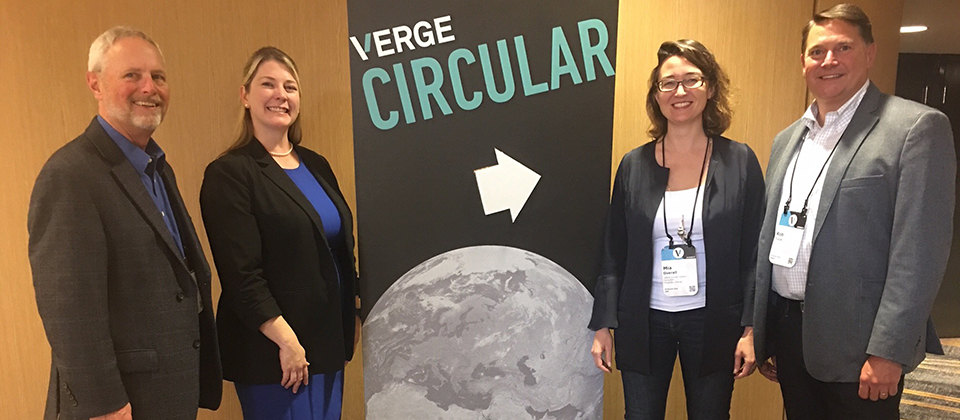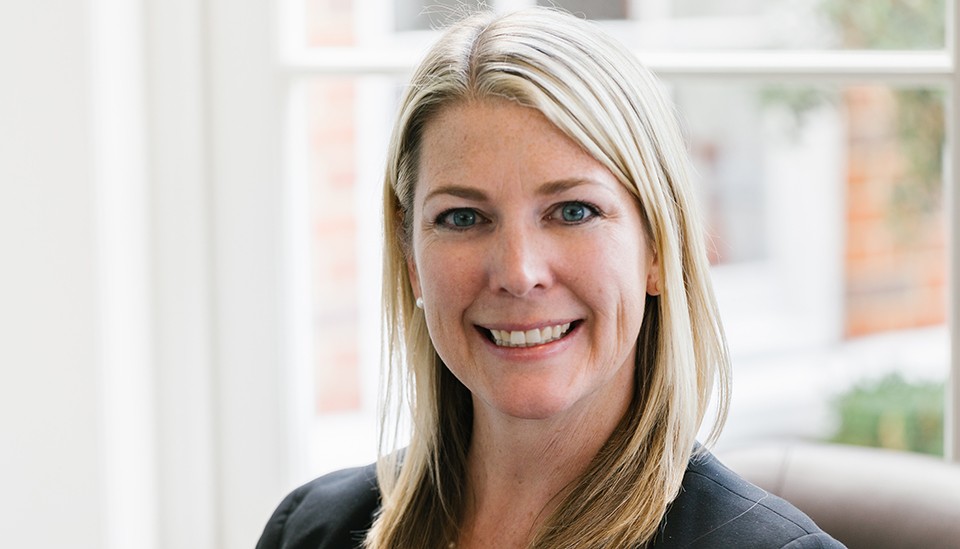Avery Dennison: Sustainability means different things across industries. What was the focus of VERGE 19 relative to food waste, specifically?
Julie Vargas: This is a complex issue with many interwoven problems to solve. To start, our society often doesn’t place much value on food, which means it's easy to waste. We also know that, historically, data collection has been sparse and often inaccurate. Across the food and agriculture industry, we’re seeing a multitude of businesses (grocers, restaurants, food service providers etc.) operating on razor-thin profit margins and still sacrificing 3-4% of their margins due to food waste.
We’re witnessing increasing public demand for more sustainable business practices across every step of the supply chain. There was general agreement that this is a problem that affects every part of every industry, and the time to act is now.
AD: You’ve noted some of the challenges facing the reduction of food waste. Are there steps that can be taken now to accelerate this necessary shift?
JV: Absolutely. Challenges exist, but so does technology. I am optimistic about the power of the label . Believe it or not, the humble label can actually play a pivotal role in helping to prevent food loss and food waste with enormous potential for financial, social, and environmental benefits.
At Avery Dennison, we have pioneered intelligent labels to digitize the information that can be placed on products, helping to capture more data with higher levels of accuracy, even in challenging environments across the food supply chain. This has the potential to impact the supply chain in ways that only a few years ago may have seemed unimaginable. We’re talking about bringing transparency into the supply chain to a degree we’ve never really seen before.
AD: You’re describing some exciting possibilities with respect to the future of intelligent labels. What would this look like in a practical, real-world scenario?
JV: Because RFID allows us to wirelessly read a large amount of data across multiple points, the implications touch every step of the supply chain. The benefits start at the farm. We can better tie harvest to consumption which means reduced labor costs, and more effective means for demonstrating compliance against food safety mandates from brands and regulators.
We can also guarantee precise traceability of data that can be invaluable to ensuring food safety. In the event of a recall, for example, we can pinpoint only those foods which are recalled, rather than wasting the entire shipment.
Finally, at the grocery store, we can avoid over-stocking items while rotating shipments, marking items down faster, or donating food before it spoils.
AD: We’re clearly witnessing a period of unprecedented innovation throughout the industry. You highlighted some exciting advancements taking place at Avery Dennison. How does this work contribute to a circular approach?
JV: When we think about supply chain challenges to any industry--be it the food industry, consumer goods, or something else--it’s critical that solutions are grounded in a business model that acknowledges a need for a circular economy. This is really what is defining innovation at Avery Dennison. It’s about creating solutions in a reliable, affordable way for the sustainability challenges--like reducing food waste--that matter most.
What we’re bringing to the food industry in terms of RFID technology is happening concurrent to other analog circular packaging advancements we’re driving when it comes to food containers and materials. Companies with our size and scale can uniquely influence a more circular approach in the food industry at multiple touch points, and with multiple solutions.
AD: Thank you, Julie. We look forward to your team’s continued progress toward a more sustainable, circular economy.
To learn more about our intelligent food solutions, visit our RFID site.
Stay up-to-date on all the latest from Avery Dennison. Connect with us on Social Media.


